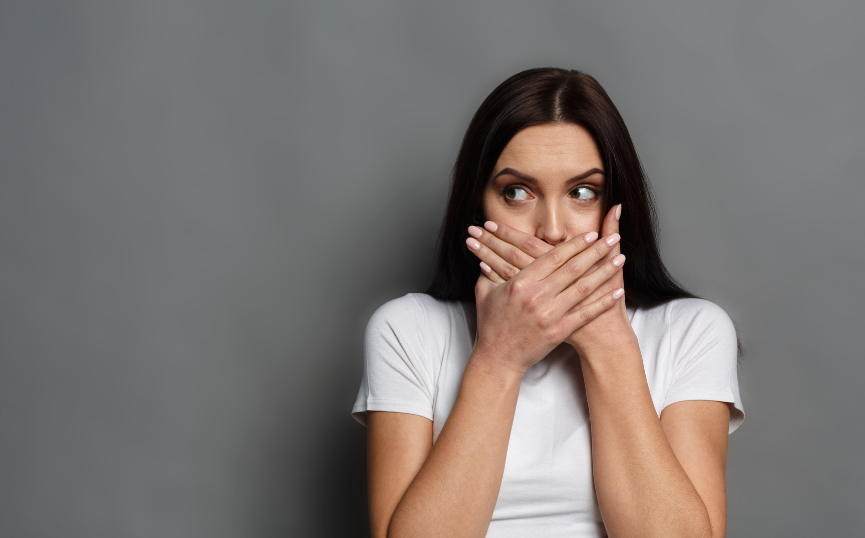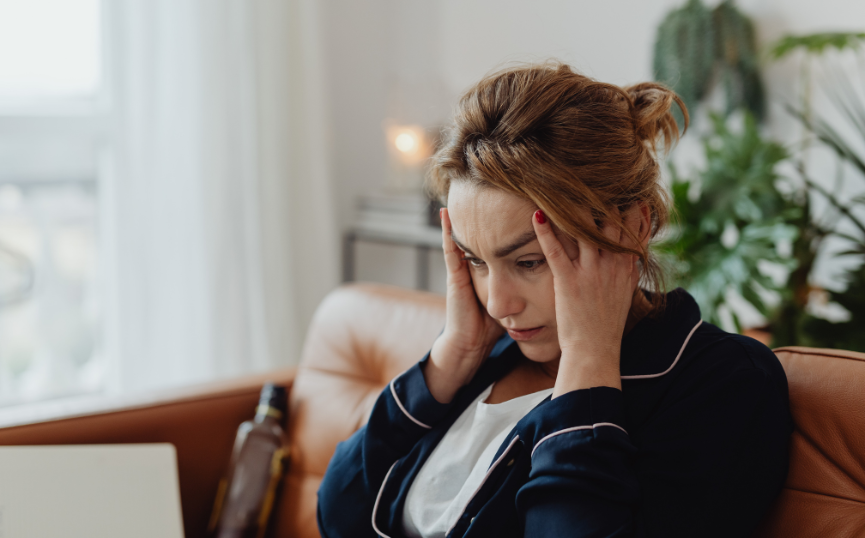What to do against herpes?

Types of herpes virus
Herpes viruses are DNA viruses; that is, they use enzymes in the host cell to transcribe their genetic material (their DNA). The best known are herpes viruses types I and II (HSV-1 and HSV-2)1-2, but others are included here:
- varicella zoster (HHV-3), which causes chickenpox (or shingles in adults),5
- Epstein-Barr virus ( HHV-4), which causes "kissing disease " 6
- cytomegalovirus (HHV-5), which causes fever, headache, sore throat and liver symptoms7
- HHV-6 infection causing "three-day fever" (roseola infantum)8
- and simian herpes virus transmitted by monkey bites .9
Is the herpes virus really incurable?
This article will focus exclusively on herpesviruses type I and type II, which together are characterised by their ability to linger in the nervous system for years after entering the body. Specifically, this means that they migrate from the site of infection to the nerve roots using the sensory nerves. In the case of herpes simplex: the trigeminal ganglion, and in the case of genital herpes: the sacral ganglion. Here, the virus enters a "dormant" (latent) state and cannot be completely cleared by the host cell's immune system. It is therefore true to say that type I and type II herpes viruses are not actually curable. They are reactivated in our bodies from time to time, but the frequency and intensity of recurrences can be reduced with the right treatments.
What is the difference between type I and type II herpesviruses?
When we think of herpes, we think of the symptoms caused by the HSV-1 virus. Characteristics of HSV-11:
- It is linked to cold sores (i.e. oral herpes), but there are other HSV-1 viruses that cause other problems (x known in total).
- In the case of a recurrence of cold sores, painful blisters may appear on the lips, around the mouth and in the oral cavity.
- It is spread through skin contact, such as kissing or sharing cutlery or glasses.
- Rarely, it may also spread to the genitals through oral-genital contact.
- It usually infects people in childhood or at a young age.
- A large proportion of the world's population (65-90%) carries the virus.
- Relapses are generally less frequent and are often associated with stress, illness or UV radiation.
HSV-2 virus is the most common cause of genital herpes. Characteristics of HSV-22:
- It causes ulcers and painful blisters on the genitals, around the anus and on the buttocks.
- It is mainly transmitted through sexual contact.
- Although rare, it can also cause oral symptoms (through genital-oral contact).
- Most commonly transmitted during sexual activity.
- Less common, but more common among sexually active people (about 11-20% of the world's population infected).
- Can recur frequently, especially in the year following the first infection.
What both groups of viruses have in common is the treatment method and the response to treatment (although HSV-2 is more prone to a more stubborn relapse). The doctor will prescribe antiviral drugs such as aciclovir or valacyclovir in the first instance.
However, complications may vary. For both types, serious complications are rare but can occur. HSV-1 can rarely cause encephalitis. HSV-2 can cause serious, even life-threatening complications in newborn babies (if the infection is transmitted during delivery).
Why can the herpes virus re-emerge?
Generally speaking, any factor that weakens or overloads the immune system can create an opportunity for the herpes virus to become active. These factors are known as "triggers" and most of these are common to HSV-1 and HSV-2, but there are also virus-specific "triggers". Of course, an individual's predisposition to relapses also strongly influences this - meaning that stronger triggers such as stress or drastically weakening immune systems will not always trigger a relapse. The converse is also true, in some situations the slightest 'trigger' can be enough to set off a flare-up.
Common "triggers" for both viruses3
- Stress and exhaustion: physical and mental stress has been shown to weaken the immune system. For example, pressure at work, sleep deprivation, relationship problems can all set the stage for a herpes flare-up. These damn herpes viruses have "brains", don't they? They know when to run rampant! Insomnia and physical fatigue go hand in hand with stress, further weakening the immune system and contributing strongly to the reactivation of the virus.
- Illness or weakened immune system. Chronic illnesses or immune-compromised conditions (e.g. HIV, chemotherapy) also increase the risk of relapse. Some drugs can drastically weaken the immune system, such as corticosteroids (painkillers) and immunosuppressants (drugs used for autoimmune diseases).
- Hormonal changes. In particular, a drop in oestrogen levels has this effect, but a herpes episode can also occur during pregnancy.
- Sunlight (UV radiation). UV radiation, such as sun exposure or tanning beds, often triggers HSV-1 symptoms (including cold sores).
- Injury: Injuries to the skin or mucous membranes (e.g. shaving, surgery, burns) can also predispose to herpes virus recurrence. Injuries around the genital area are a trigger for HSV-2, while for HSV-1 it is sores around the mouth.
There are also virus-specific "triggers".
In the case of HSV-1: "cold sores" often occur when a cold or a cold is present. This is why it is called "cold sores". Lip cracks due to windy or dry weather can also trigger HSV-1.
For HSV-2: Sexual contact, especially intense or prolonged intercourse, can cause irritation that can activate HSV-2. Tight, poorly ventilated clothing can also predispose to herpes virus development. 4

Let's reverse the list below! Lifestyle tips to prevent herpes:
Avoid stress: relaxation techniques, yoga or meditation can help reduce stress.
Watch your diet: a balanced diet rich in vitamins, minerals and antioxidants can support your immune system. Spoiler: avoid eating seeds! 😊
Use sunscreen: to prevent lip herpes caused by UV rays, use a lip balm with a UV filter.
Get enough sleep: adequate rest is essential for a healthy immune system.
What can we do if we already have a problem?
First and foremost, follow your doctor's instructions and use the therapies he or she recommends. Antiviral drugs (in cream or tablet form) are the first line of treatment for herpes virus. Additional complementary therapies and dietary supplements cannot replace any drug, but can stimulate the healing process and reduce the frequency of recurrences. So the following suggestions from Vitamin360 are not a substitute for any medical therapy.
Taking lisin for herpes
The amino acid L-arginine is needed for the herpes virus to replicate. And the essential amino acid L-lysine is transported to the target sites by the same transporter protein - in other words, L-lysine "competes" with L-arginine to get into the transporter. The difference between the two is that while arginine favours herpesvirus replication, lysine does not.10
Lysine may be helpful in acute herpes: for this, it is recommended to use higher doses. Studies have found only higher doses of 3000 mg to be effective for acute herpes. This is the minimum and maximum effective dose in such cases. It is not recommended to take any higher than this, as extra lysine may predispose to kidney stones.
Lysine can also help prevent flare-ups: if you are prone to herpes, taking 1000 mg of lysine a day can reduce the frequency of flare-ups. Studies have found it safe to take 1000 mg of lysine for 1 year of continuous use. For people with kidney disease, taking lysine is not recommended (as it may predispose to kidney stones), so be sure to consult your doctor before taking it long-term.
In addition, lysine is most helpful when taken in combination with a diet low in arginine. At Vitamin360, we're not telling you to forget the following foods forever, but in the case of acute infections, put the following arginine-rich foods on the ban list for quicker recovery:
- Pumpkin seeds
- Sunflower seeds
- Almond
- Cashew nuts
- Walnuts
- Hazelnuts
Also focus on foods rich in lysine, such as dairy products, fish and lean meats.
Other supplements for prevention and treatment
In general, all immune-boosting agents can improve the frequency of herpes virus recurrence and stimulate the recovery process. The most powerful immune-boosting and antiviral agents:
- Vitamin C15: e. the essential immune booster, may help to further relieve the burden on the immune system through its antioxidant effects. It may also help the skin to regenerate faster due to its role in collagen production.
- Zinc16: zinc plays an important role not only in the immune response but also in skin regeneration.
- Vitamin D14: to support the immune system and reduce inflammation. It is particularly useful in winter.
- Propolis: a natural substance produced by bees, known for its antiseptic properties and can help heal herpes sores more quickly. Some studies have shown effects that rival those of the popular herpes drug acyclovir.12 So, in addition to lysine, be sure to get Natur Tanya S. Propolis Drops, which can be used externally and internally. As with all herbal extracts, propolis drops should be taken with a break.
Summary
Herpes is an unpleasant but treatable and even preventable condition.
If prevention is the goal, use a quality and complex multivitamin supplement such as GAL+ Multivitamin. Considering its effects on kidney stones: after consulting a doctor, you may want to take a low dose (500-1000 mg) of Now Foods L-Lysine.
In case of possible recurrences, it is worth increasing the daily dose of lysine to 3000 mg. The periodic use of Natur Tanya S. Non-alcoholic Propolis Drops internally may help to treat herpes virus recurrences. It can also effectively improve the discomfort of flare-ups.
If herpes virus flares up frequently even after following the advice, it is essential to consult a doctor for a personalised treatment plan.
- Saleh D, Yarrarapu SNS, Sharma S. Herpes Simplex Type 1. [Updated 2023 Aug 28]. In: StatPearls [Internet]. Treasure Island (FL): StatPearls Publishing; 2024 Jan-. Available from: https://www.ncbi.nlm.nih.gov/books/NBK482197/
- Mathew Jr J, Sapra A. Herpes Simplex Type 2. 2024 Mar 13. In: StatPearls [Internet]. Treasure Island (FL): StatPearls Publishing; 2024 Jan–. PMID: 32119314.
- Stoeger T, Adler H. "Novel" Triggers of Herpesvirus Reactivation and Their Potential Health Relevance. Front Microbiol. 2019 Jan 7;9:3207. doi: 10.3389/fmicb.2018.03207. PMID: 30666238; PMCID: PMC6330347.
- https://www.nhs.uk/conditions/genital-herpes/
- Gershon AA, Breuer J, Cohen JI, Cohrs RJ, Gershon MD, Gilden D, Grose C, Hambleton S, Kennedy PG, Oxman MN, Seward JF, Yamanishi K. Varicella zoster virus infection. Nat Rev Dis Primers. 2015 Jul 2;1:15016. doi: 10.1038/nrdp.2015.16. PMID: 27188665; PMCID: PMC5381807.
- Hoover K, Higginbotham K. Epstein-Barr Virus. [Updated 2023 Aug 8]. In: StatPearls [Internet]. Treasure Island (FL): StatPearls Publishing; 2024 Jan-. Available from: https://www.ncbi.nlm.nih.gov/books/NBK559285/
- Gupta M, Shorman M. Cytomegalovirus. 2023 Aug 8. In: StatPearls [Internet]. Treasure Island (FL): StatPearls Publishing; 2024 Jan–. PMID: 29083720.
- Mullins TB, Krishnamurthy K. Roseola Infantum. [Updated 2023 Jul 4]. In: StatPearls [Internet]. Treasure Island (FL): StatPearls Publishing; 2024 Jan-. Available from: https://www.ncbi.nlm.nih.gov/books/NBK448190/
- Elmore D, Eberle R. Monkey B virus (Cercopithecine herpesvirus 1). Comp Med. 2008 Feb;58(1):11-21. PMID: 19793452; PMCID: PMC2703160.
- Mailoo VJ, Rampes S. Lysine for Herpes Simplex Prophylaxis: A Review of the Evidence. Integr Med (Encinitas). 2017 Jun;16(3):42-46. PMID: 30881246; PMCID: PMC6419779.
- Griffith RS, Walsh DE, Myrmel KH, Thompson RW, Behforooz A. Success of L-lysine therapy in frequently recurrent herpes simplex infection. Treatment and prophylaxis. Dermatologica. 1987;175(4):183-90. PMID: 3115841.
- McCune MA, Perry HO, Muller SA, O'Fallon WM. Treatment of recurrent herpes simplex infections with L-lysine monohydrochloride. Cutis. 1984 Oct;34(4):366-73. PMID: 6435961.
- Rocha MP, Amorim JM, Lima WG, Brito JCM, da Cruz Nizer WS. Effect of honey and propolis, compared to acyclovir, against Herpes Simplex Virus (HSV)-induced lesions: A systematic review and meta-analysis. J Ethnopharmacol. 2022 Apr 6;287:114939. doi: 10.1016/j.jep.2021.114939. Epub 2021 Dec 26. PMID: 34965458.
- https://ods.od.nih.gov/factsheets/VitaminD-HealthProfessional/
- https://ods.od.nih.gov/factsheets/VitaminC-HealthProfessional/
- https://ods.od.nih.gov/factsheets/Zinc-HealthProfessional/




![GAL GAL+ Multivitamin [new recipe] (205.9 g) GAL GAL+ Multivitamin [new recipe] (205.9 g)](https://en.vitamin360.com/img/42678/2280035000/264x264,rq75p/gal-plus_multivitamin_hatcimke.webp?time=1745477197)
